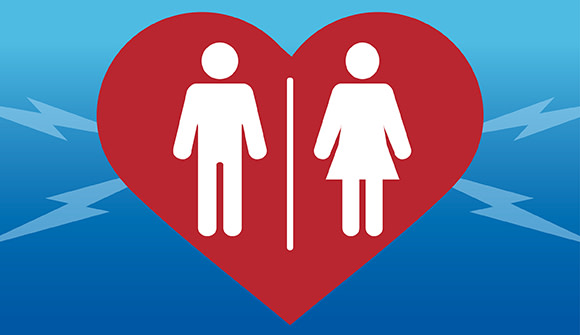Slow your flow
How to handle a heavy period
Article Date:

It’s safe to say no woman enjoys that special time of the month, but some may dread it more than others, particularly if they experience heavy, hard-to-manage periods.
The definition of a heavy period varies slightly from one woman to the next, according to Paulami Guha, MD, and Maryellen Wechter, MD, gynecologists with North Florida Gynecology Specialists who serve patients at Baptist Health. However, there are some common characteristics, including:
• Anything more than 80mL of blood per cycle (the equivalent of a medium-sized perfume bottle) • A period longer than seven days • Soaking one or more pads or tampons every hour (or flooding through into clothing or bedding) • Clots of blood larger than a quarter • Negative impact on your quality of life
Menstruation explanations
The causes of a heavy period can vary greatly: • Fibroids: benign tumors of uterine muscle are the most common cause of heavy periods • Anovulation (not ovulating): Heavy, irregular bleeding occurs when the uterus does not receive the correct signal to empty accumulated gland tissue each month. The resulting period is often very heavy and prolonged (even weeks!) Common causes of anovulation are: o Immature or waning hormone signals from the brain during the first few years of adolescence, perimenopause (several years before stopping menses completely) and menopause. o Hypothyroidism: thyroid doesn’t produce enough thyroid hormone. o Polycystic ovary syndrome (PCOS): the ovary makes too much male hormone ( androgen), which prevents ovulation • Bleeding disorders (von Willebrand disease) or being on blood thinners • Cancer of the uterine lining (endometrium) or sarcomas (cancer of the uterine wall) or cancer of the cervix
“To help determine the cause of a heavy period, physicians need a thorough understanding of the patient’s medical history,” Dr. Guha said. “Additional tests include labs, a pap smear, and imaging, such as an ultrasound or a pelvic MRI.”
The most common cause of regular heavy bleeding is fibroids, which impact about 70-80% of women by age 50, according to Dr. Wechter. Fibroids are benign tumors of uterine muscle that can cause bleeding when they form close to the lining (endometrium) of the uterus.
Dr. Guha said if a fibroid is located near where an egg may implant, it could lead to infertility, but the lesions themselves do not cause infertility. For that matter, neither does heavy bleeding.
However, paying attention to your body and its cycles is still important. For example, if you’re still bleeding after menopausal age, even if it is light bleeding, you should be evaluated to ensure it’s not a sign of something more serious, such as cancer.
Treatment types
The good news for those suffering from heavy periods is there are many treatment options available.
“Life as a woman is hard enough without having to deal with the unnecessary burden of a heavy period,” Dr. Wechter said.
She explained there are two main treatment categories:
Medicine
Birth control pills, progesterone intrauterine devices (IUDs) and progesterone devices that are implanted into the arm can be used to control heavy bleeding by increasing progesterone levels. Progesterone inhibits growth of the uterine lining and helps to keep the gland tissue more stable and less active/thick. This generally leads to lighter or absent periods.
While these hormone options address the source of the bleeding, Dr. Wechter said tranexamic acid is another option to lessen bleeding without influencing hormones. It’s a prescription pill that slows the breakdown of blood clots in bleeding vessels to control very heavy or fast uterine bleeding. A class of drugs called GnRH antagonists can be used to rescue a woman from terrible bleeding or anemia, particularly when that bleeding is from fibroids. GnRH angatonists act on receptors in the brain to stop the hormone pulses to the ovaries, putting the body into a pseudo-menopausal state with no bleeding, allowing a woman to recover from anemia and prepare for a more long-term solution.
Surgery
Dr. Wechter said surgical options depend on whether the patient wants to have children after treatment.
For those who want to procreate, treatment involves fixing any existing structural problems that would make conception more difficult, such as removing a larger fibroid that may be making it harder for an egg to implant in the uterus.
For those who don’t want children or already feel their families are complete, most hormonal treatments also prevent pregnancy temporarily, and for women who have exhausted medical treatments, a hysterectomy may be a good option. Most hysterectomies (removing the uterus and tubes but retaining functioning ovaries) are now done as outpatient procedures with minimally invasive techniques, allowing much less discomfort, fewer complications, and a fast return to normal life.
When in doubt, get checked out
“If your period is affecting your quality of life, don’t sit at home,” Dr. Guha said. “This is the 21st century – there are so many options available.”
If you’re concerned about heavy bleeding during your period, Baptist Health can help you find a primary care physician or OB/GYN. To find the right doctor for you, call 904.202.4YOU.



